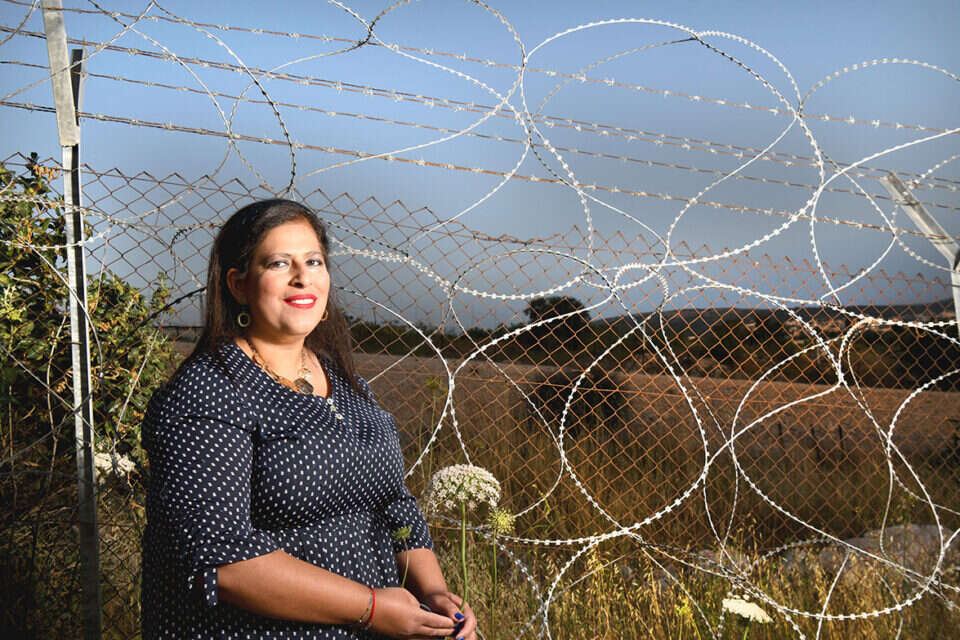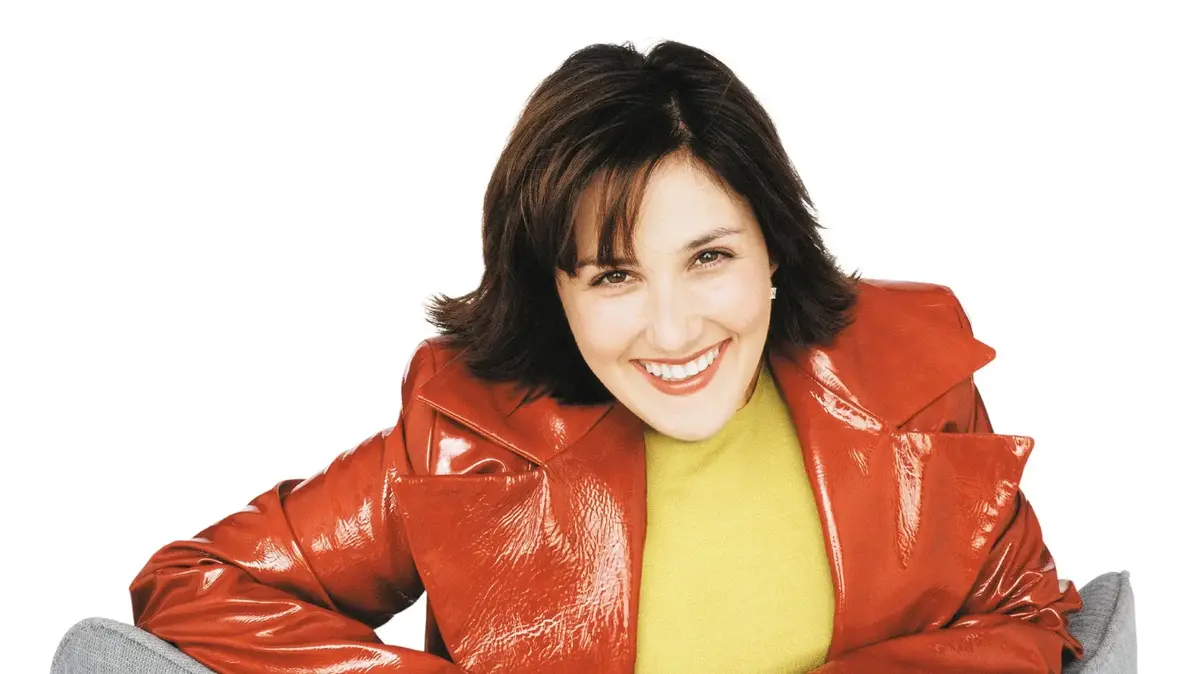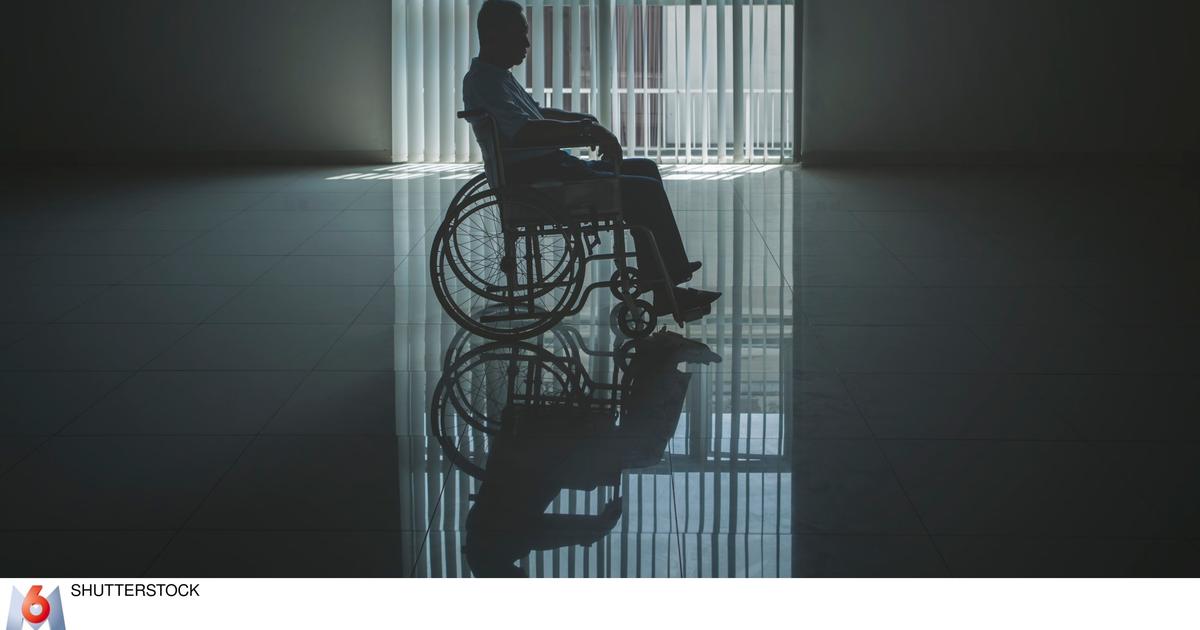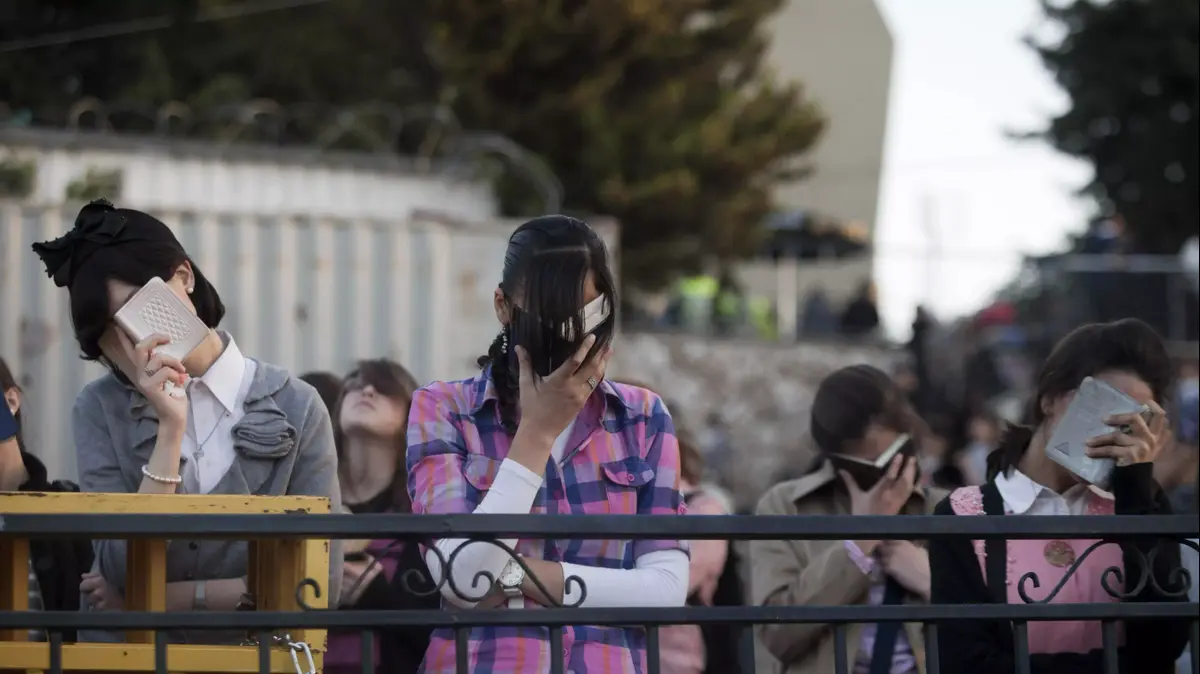Waking up one morning and realizing that half of his life has already passed, and being left there alone on stage, with no supporting actor, no backup.
The sun that lit up the day placed a lone ray on the track where you stand.
You realize that the past time can not be answered, the children who could fill you with infinite happiness, the house you have always dreamed of remains in the dream.
"And the most beautiful thing is to hear comments about the default I face. It's not us, it's the husband. A lovely answer, only there is a small problem - you got confused. The default is yours, because you folded and surrendered where authority is in your hands. The law. "
These painful words were written in her diary by Ricky Rani, shortly after she found herself "imprisoned" again - by her husband, who has been refusing to give her a divorce for 20 years, and by the Tel Aviv Rabbinical Court, which released her from marriage but withdrew his decision.
Her "I blame", which has so far remained deep in the drawer, is directed against everyone who harmed her - led by senior judges in the ultra-Orthodox world.
"I swore I would not cry"
On November 3, 2021, hundreds of ultra-Orthodox WhatsApp groups in Israel received a photocopy of an unusual letter, almost the only one of its kind, which revealed one of the most difficult stories of mooring in Israel, which until then had been conducted in rooms only.
In the letter, senior judges, some of them members of the Grand Court, came out against a precedent-setting ruling given a few months earlier in the Tel Aviv Rabbinical Court, as part of a special panel that released Rani from her marriage after nearly 20 years of docking.
"According to our holy Torah, this permit has no halakhic basis, and it is void as Afra Daraa (as the dust of the land; HG), and the woman is the wife of a perfect man," the judges wrote. .
We hereby call on the members of the tribunal to withdraw from this wrong permit. "
The letter, along with behind-the-scenes pressure, did its thing.
The judges in the rabbinical court in Tel Aviv returned to them, and again imprisoned Rani in the prison of refusal.
It was the straw that broke Rani's back.
The point at which she made two significant decisions: The first was to disengage from the ultra-Orthodox society that "betrayed" her, to her sense.
The second was to be exposed for the first time.
The realization that the rabbinical establishment was not interested in helping her, and that the fact that she was defined as married in the eyes of the ultra-Orthodox world was purely political, led her to say to herself clearly: "I must have my voice heard."
We meet in the late afternoon at the offices of the Yad LaIsha organization, an organization founded by the Or Torah Stone organization to combat the phenomenon of refusal to divorce through the representation of those who refuse in the rabbinical court.
Rani enters the building from the side entrance, in the Arnona neighborhood of Jerusalem, through a gate that is locked with a code so that unwanted guests will not enter.
"I swore I would not cry, I will not give my husband this gift," she tells us at the beginning of the interview, and then again and again, keeping a wide smile even as she chooses word for word.
And the truth is ours is hard to stop the tears at hearing the story of the woman who was imprisoned without a divorce by her partner for years, released - and returned by judges to "life imprisonment" at the moment, without expecting any pardon.
Rani (42) was born and raised in Bnei Brak as the eldest daughter of a classic Mizrahi Haredi family.
"Blessed are children," she says, not adding.
After graduating from high school, she began working as a preschool caregiver, a job she still does today in Elkana, Samaria, where she lives.
Her parents were looking for a match for her, but it only came at the age of 22 and a half - the "adult" age of an ultra-Orthodox young woman.
"In terms of the ultra-Orthodox world, I was an old single woman, and I was looking for the choice of my heart," she says.
"When I met B., in 2002, I fell in love from the first moment. He was a very intelligent, smart man, knows how to talk, looks like someone who has lived all his life before him. He then worked at the Diamond Exchange. A man of real dreams."
The two moved to London, where B., a member of one of the most extremist Hasidic denominations not recognized in the State of Israel, lived.
The happy Rani started her new life, but after a very short time, B.'s real face was revealed.
"It was the beginning of a relationship I did not wish on anyone," she recalls, "he did not allow me to work despite a summary we had before, did not let me socialize, isolated me, took my passport, and refused to let me learn English, "So I had no one to talk to even if I wanted to. No one around me knew anything, I didn't even tell my parents, I was scared."
As part of the legal proceedings before the judges, Rani claimed, among other things, that B. used very severe violence against her, and the culmination was shocking sexual violence.
"A few months was enough for me and I wanted to tell him I was leaving, but then I found out I was pregnant. I could not leave him after I found out, I was too mentally weak.
"There was no food in the house, and when I asked him to buy it he refused. I had a neighbor who would bring me soup, and thanks to her I had food. It's not that he had no money, he just abused me."
With the rabbi claiming Adv. Tehila Cohen and the claiming rabbi Nissim Abergil, on the day she received the verdict on the cancellation of the Kiddushin. "I felt on the roof of the world," Photo: Courtesy of Ricky Rani
For nine and a half months, Rani suffered, she claimed, the armrest of B., then decided to take action and escape.
"We had a family event in the country, and I told him a fact - I told him either he would buy a ticket or my parents would buy me the ticket. He came with me because he was sure he would get me back to London, but when we arrived I blew everything up and said I would not return.
"I was in my eighth month and came to my parents' house. That night was the first night I slept since the wedding. When I told my parents what I went through they were in utter shock, did not know how to eat it."
She tried to hide the location of the birth at all costs.
"I went alone to give birth at Maayan Hayeshua Hospital in Bnei Brak. I did not tell anyone except my mother, but somehow B. found out where I was. Every time he entered the room where I was hospitalized, my indicators would jump, my blood pressure would rise. My condition was "Poor, the doctors would instruct him to go out to improve my condition."
Rani gave birth to a son, and eight days later a circumcision ceremony was held, also under terror.
"B. organized the whole ceremony and informed my brothers that I must come. I was afraid, I was afraid he would hurt me, and I did not come. My brothers went with B. and promised to take care of my son and bring him back. He gave him a name, but I refused to accept him. I gave him a name. Another, which I will not reveal in order to preserve it. "
Rani asked to start divorce proceedings before the birth, but the rabbinical court did not agree to open a case for her because of the pregnancy.
"When my son was two weeks old, in November 2004, I opened the case in the Rabbinical Court in Petah Tikva. That is where my struggle in the Rabbinical Court began, a struggle that has not ended to this day. I will never forget the first time I told my story, which I have told countless times since. "A few months ago I had to tell it again, after almost 20 years. It is a traumatic experience. I stood there and almost fainted."
"It's hard not to develop expectations"
B. flatly refused to divorce.
"The first time I told him I was not willing to live my life the way he wanted, he said in clear words: 'I will not give you a divorce in life.' Even then I realized that I would not have cooperation on his part, that he would do anything to make my life bitter."
For two years, B. attracted Rani, until one day, in 2006, she found out through mutual friends that he had remarried, and even had another child.
Rani, through her lawyers and public figures, tried to put enormous pressure on B., including appealing to his rebbe - but to no avail. "The ultra-Orthodox community in London was furious. To some, but it did not help and he did not agree to give me a divorce. "
Ricky Rani on her wedding day with B.
"He just abused me," Photo: Courtesy of Ricky Rani
Another four years passed.
Rani tried to rebuild her life in parallel with the struggle for the long-awaited divorce and the upbringing of her son, and began working again as a daycare caregiver.
In 2010, with the help of members of the Itim organization, which assists with various issues in the field of religion and state, she succeeded in bringing B. to a court hearing in the United Kingdom.
"I thought I had reached a breakthrough. Even before I got on the plane I thought the chances of a divorce were small, but it was hard not to develop expectations. The flight was preceded by insane preparations. It was a very arduous journey just to get to court and face him, tell the truth inside and hear his claims. "Conditioned the divorce by giving up alimony for a very long time, we closed all the ends, everything according to his demands. I was supposed to come just to please his honor - that he would give me a divorce."
But in court, B. withdrew his consent, and again vehemently refused to grant the divorce.
"I stood in front of him, and he said he would go to jail for life and not give me a divorce. Those were shaky days. Last morning in London I fainted several times. In a taxi, on the way to the airport, I looked back and cried. I did not understand how I could return to Israel without a divorce. "Tell everyone? My son was already 7 years old, he was already aware of some of what was happening around him. I did not know how I comforted him."
That discussion was the last time Rani met B.
Although there were behind-the-scenes attempts to pressure him, nothing worked.
"We summoned him to his rebbe, he is assigned out of disgust, but nothing helps."
Do you have any idea why he refuses?
"I was asked this countless times, and I replied that I did not know. Why did not Pharaoh free the children of Israel from Egypt? God hardened his heart.
There are things that only Elijah the prophet will come and explain.
I have a lot of questions, a lot of things that I do not understand. "
"Living in a sense of synonymy"
Rani came to Yad LaIsha in 2018, when she was already completely desperate.
"Nissim Abergil, my rabbinical claimant at the time, advised me to contact them. I did not have the strength to contact any organization. If it was something that required more than my signature, it was difficult to persuade me to do it. I knew another long and arduous journey of meetings awaited me. "Repeat the difficult descriptions, once again cut the meat a million times. They had to give me back the confidence that they would be able to do something."
The solution they came up with in "Yad LaIsha" was groundbreaking: to completely abolish the kiddushin as part of a procedure called "bargaining error".
This is an exceptional and relatively rare procedure, in which the rabbinical court annuls the marriage, claiming that the agreement was not made lawfully.
This means that the woman is single again, as if she had never been married.
"At one point we tried to find out who B. was," explains Adv. Tehila Cohen, who claims to be a rabbi on behalf of the organization that has accompanied Rani for several years.
A person without boundaries.
We understood that all the solutions had been exhausted, and that it was impossible to move forward in the standard ways. "
Cohen submitted to the court an opinion from a psychologist and psychiatrist, who stated that B. was insane, that if Rani had known his condition before the wedding she would not have married him, and as proof - once she found out who and what - she did not want to continue her life with him.
"The more I studied and delved into the factual circumstances and evidence presented to me, the more I believed with all my heart that halakhically Ricky could be released on the grounds of a mistaken bargain," she explains.
Due to the complexity of the case, Rabbi David Lau, the chief rabbi and president of the Great Rabbinical Court, approved the establishment of a special panel in the Tel Aviv court.
Cohen: "We have begun a journey to find judges who will agree to discuss this idea, because it is undoubtedly controversial and complex. A discussion that is not acceptable even though it exists in halakhah."
Three judges, Rabbi Yair Ben Menachem, Rabbi Daniel Edri and Rabbi Ephraim Cohen, agreed to discuss the matter, and in August 2021 the dramatic verdict was handed down.
After almost 19 years, Ricky Rani was released when she is allowed to be a person in Israel, and is defined not as divorced but as single.
Due to the great explosiveness of the verdict it was not published in full and was not given to anyone, including Rani herself, and she received only the bottom line in writing - that she was allowed to marry.
"When I received the verdict I felt like I was on the roof of the world," she says, "there was a moment in the discussion where all the hard questions were asked again, and then I was told I was allowed. I have no way to describe it. "In euphoria, I did not stop smiling. I kept crying with excitement. I started dreaming dreams."
But then her world turned upside down.
Three months after her marriage was annulled, a scathing letter was circulated on the ultra-Orthodox social networks, signed by current and retired senior judges, who disagreed with the decision and pressed for its annulment.
The letter was signed, among other things, by the father of the retired Rabbinical Court in Tel Aviv, Rabbi Nahum Prober.
"Suddenly my brother sent me a message on WhatsApp with the photocopy of the letter, and asked if it was related to me," Rani recalls, "I looked and my eyes turned black. "Revealed all the details, it was shocking."
"We are proud to reveal our opinion, Da'at Torah, about the cancellation of the kiddushin made in the Rabbinical Court in Tel Aviv on the grounds of a mistaken bargain," the judges wrote, "based on a psychological opinion given many years after the marriage, and based on the wife "And from this the psychologist concluded that the husband probably suffered from personal and behavioral disorders. This psychological opinion, which relies on hypotheses and estimates that are not necessary at all, can not be the basis for any halakhic judgment, and certainly can not be relied on in serious questions."
Some of the judges who came out against the dramatic decision saw the verdict even though it was confidential, others expressed their position without knowing all the details of the case.
Even the London Rabbinical Court, the same one that boycotted B., came out against the ruling.
The pressure did its thing - and the three judges in the Tel Aviv Rabbinical Court reversed the ruling.
"My heart felt like glass shattering into millions of pieces. They took my body and soul to the highest place in the world - and threw it down. I felt like a person with a terminal illness and found a cure - and then the disease returned. So far I am broken and shattered."
Are you angry with the judges who returned them?
"They are good people who have been pressured. I am not angry, I feel betrayed by the system. I understand that there is no proper and correct answer to the agonies and refusals to divorce. You know where the husband is, you hear him say he will not divorce and keep laughing, and the system has nothing to do."
The heavy suspicion of Ricky and the Yad LaIsha people is that the reason for the opposition stems from the fact that this is a revolutionary verdict and over-conservatism, one that prefers to leave Ricky anchored rather than release her in creative ways.
"Every anchoring story is a difficult story, but I have never encountered a reality in which a woman was set free and later returned to captivity. This is an indigestible reality," says Advocate Cohen. , Without hearing the tract of facts and evidence brought before the Rabbinical Court, without conducting the procedure as determined by Halacha.
"A basic principle in halakhah is 'court after court is not precise,' which means that no court may set aside the judgment of another court. He has heard evidence and can not rule on something that his eyes have not seen, and it is towards those sitting in court who 'see' what is brought before them, and do not fear that they will be wrong.
"The whole purpose of the critics was to intimidate anyone who dared, after interrogation and in-depth study, to release the woman from her dock, and this is a reality that is difficult to accept. I am disappointed that the court as an institution did not make a clear and unequivocal statement.
"I expected that without addressing the substance of the matter, there would be a clear and decisive statement that this was a legal proceeding conducted behind closed doors in accordance with all the rules of halakhah, and that no public discussion of the issue should be allowed. "Because the judges who signed the ruling did so after obtaining the consent of great and important rabbis."
The president of the Or Torah Stone Institution Network, Rabbi Dr. Katriel Brender, also spoke out strongly against the extraordinary action of the critics: "In this case, a system of pressure was activated that crossed all borders.
If there was a halakhic problem or a substantive argument against the ruling, it should have been discussed even before the decision was given and officially handed over to the woman.
"Once the decision has been made, it should not be followed by anything, certainly not while holding a public hearing that reveals the details of the confidential case as part of a well-publicized and orchestrated campaign."
Adv. Tehila Cohen. "An indigestible reality", Photo: Aharon Efrati
"Save yourself"
Eight months have passed since Rani's dream shattered, but she stands by her decision not to cry.
"My motto is that no matter what happens - I do not allow anyone to take my smile off. Life is happy, God willing, and I am grateful for every moment.
"When my son was born I realized I had a child and with him I would be the happiest in the world, no matter what. True, he has no father, but he has a huge family, lots of uncles and aunts, grandparents who love him. What matters is how we live our lives. I have A precious treasure that God has brought me.
At least I won a kid, won him over and I'm happy to the roof.
There are so many women who would like a child and they do not have one. "
This interview was conducted with the approval of her son, now 18 years old and studying at an ultra-Orthodox yeshiva.
"If he did not agree, I would not do it under any circumstances. He accepts me as I am, because he too is going through a process himself.
"There is a moment when a man realizes that one has to open one's mouth, speak, respond, look for oneself. I had to take my story out, like the voice of other women who experience violence and dare not speak. If I can get one woman out of the cycle of violence, that's enough for me. Whenever there is an affair of a divorce refusal making headlines, or of a woman being murdered by a violent husband, everything rages inside. I know it could have happened to me too, I know what it's like to be in this situation. I want to shout 'Take your feet and go. Save yourself, then ask questions. "
Because the rabbinical court has explicitly ruled that she is unmarried and repeated it - Rani considers herself single.
"It does not bother me what the judges say, because I got my answer," she emphasizes, "the politics they do on my back that will stick to someone else. For many years I did not talk to men, I did not make connections, I was alone, I kept to myself, "Because the faith remained. Everyone told me I was crazy that I was not dating anyone, but no one would take my God out of me."
Would you go out with someone today?
"Yes. I want a relationship. It hurts me the most that I'm alone because my dream was to have a home full of children, a relationship, a career, a normal life. It's not a simple request to ask a man to date a woman who is not available to the establishment, but I hope I find it. That suits me, my soul mate, that I can transcend rabbinic politics and start a family. "
• • •
The management of the rabbinical courts stated: "According to the rules of the hearing, there is no final hearing in the rabbinical courts, and if the court fears that it erred in its ruling, it may amend it."
No response was given on behalf of B.
hanangreenwood@gmail.com
Were we wrong?
Fixed!
If you found an error in the article, we'll be happy for you to share it with us



/cloudfront-eu-central-1.images.arcpublishing.com/prisa/BEHGGQZBURDSZG3TTV3Y6ERJCU.jpg)
/cloudfront-eu-central-1.images.arcpublishing.com/prisa/YVK4HZAFDKHYPX5IOZ5XKJSHDA.jpg)
/cloudfront-eu-central-1.images.arcpublishing.com/prisa/BLVIXQXNY4YIZ5Y32AS7YFEHR4.jpg)



